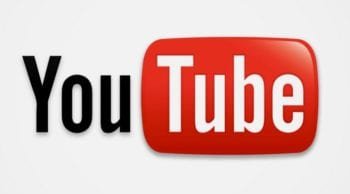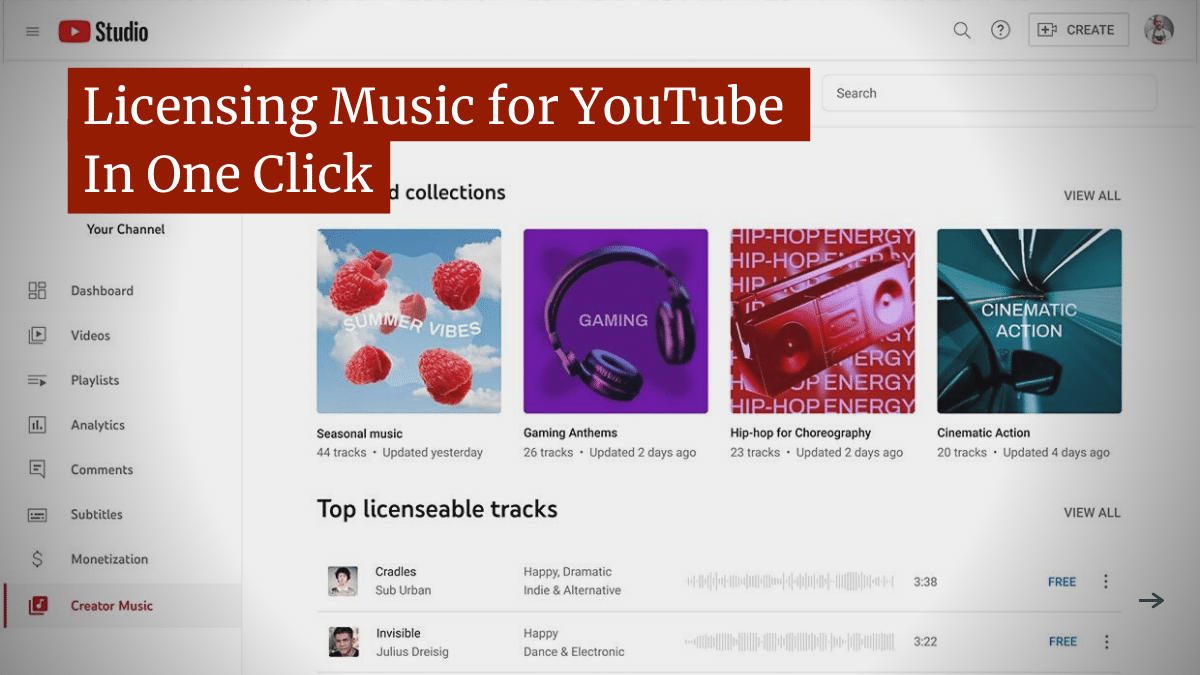YouTube Aims to Simplify Music Licensing

Yesterday, at YouTube’s Made on YouTube live event, YouTube announced some major changes, including a push to monetize shorts and a revamping of the Partner Program.
However, perhaps the most significant change is happening on the copyright side of things. Specifically, YouTube is taking steps to make it easier for YouTubers to license popular music for their videos.
Entitled Creator Music, the system makes it easy to for YouTubers to license available songs and maintain monetization of their videos. The system even allows YouTubers to either license the video up front or to enter into a revenue sharing agreement with the rightsholders.
According to YouTube, this is the product of relationships they’ve established with more than 50 record labels, music publishers and distributors. Though the system is currently in beta, YouTube says, “several hundred thousand tracks” are already available, mostly from independent labels.
For YouTubers, this could be a major boon and lead to a rise in the number of videos featuring popular songs. For artists and composers, it too could be a big deal, providing a new revenue stream.
As such, it’s worth taking a minute to see how it works and why this could be a major deal.
How Creator Music Works
For a long time, YouTube has offered an audio library containing thousands of songs and sound effects that are free for all YouTubers to use. However, that library has often been criticized as being limited, featuring predominantly open-licensed music that, to many, feels generic.
Creator Music, in effect, expands the free audio library with a new library of options from various record labels and publishers. To that end, there are two ways that video creators can license the traciks.
The first is to simply pay upfront. The YouTuber pays a flat rate to use the track in their video. That amount can vary wildly. Most articles indicate that the most common range is between free and $4.99. However, images provided by YouTube show tracks priced at $9.99 and $29.99.
This pricing will be set by the rightsholders and can also fluctuate over time.
The second approach is to license the track for free but enter into a revenue sharing agreement. Under this agreement, YouTube would still take it’s 45% cut of the revenue earned, but the uploader and the song’s rightsholders would split the remaining 55%, creating a 45-27.5-27.5 split.
With this approach, the YouTube would also pay a small performance rights fee, that that amount is unclear.
In short, YouTubers would see their ad revenue cut in more than half taking this approach, but could use the music without fear of copyright strike or having all the monetization of their video taken away.
There are things that are not known, including whether there is a time limit on the license, if YouTubers can use multiple tracks in a song and so forth. Regardless, this is potentially a major step for both YouTube and YouTubers in the space of licensing music.
Why Creator Music is Important
The reason this is important is simple: Music licensing is incredibly difficult.
For every song, there are two copyrights, one for the composition of the song and one for the sound recording. Clearing both sets of rights can be incredibly difficult, with sometimes it being a challenge just learning who you can license it from.
For YouTubers, this has been a high-stakes game. Videos that use copyright-protected music are routinely either taken down or are fully monetized by the rightsholders. This has been true even in cases where only short clips were used.
This has prompted many YouTubers to simply avoid using such music, even in very small amounts. Creator Music now opens up music licensing to regular YouTube creators, providing both an ease of licensing and, for the moment, affordable rates.
However, this is not to imply that there aren’t serious concerns and challenges. For example, a recent report by the Create Music Group found that YouTube’s royalty system is “full of errors” and “ripe for abuse.”
This came to light in a very pronounced way in December 2021 when the Department of Justice alleged that two men stole more than $20 million in royalties through YouTube’s system.
Simply put, for a system such as this to work, it is crucial that the correct rightsholders are identified, are on board and are being paid appropriately. Without that, the entire process will fall apart.
YouTube itself seems to acknowledge some of these complexities. Christophe Muller, who made the announcement, said that, “It’s the first time this is being done at this scale.”
And, it is. That’s most likely why none of the major record labels have signed on as of this writing, and why much of the music will be limited to independent labels and publishers.
However, if it does prove to be a success, it could be enough to draw larger rightsholders in. Unfortunately, that success depends largely on YouTube’s handling of these licensing agreements behind the scenes and, as we’ve seen, YouTube’s reputation in that space is not ideal.
Bottom Line
To be clear, this could potentially be a great thing for YouTubers, songwriters and musicians alike. Though there are plenty of challenges and difficult questions, the idea is refreshing.
Simply put, music licensing is complex and, at times, can seem extremely archaic. Because of this, music licensing is far out of reach for most YouTubers. The complexities and costs involved are just too great, and it’s much easier to just either go without music, use YouTube’s audio library or find another stock audio library.
YouTube is trying to offer an alternative and it’s one that they are uniquely positioned to provide.
While the future of this system is very uncertain, it represents a major attempt to streamline music licensing for video creation and it does so in a way that’s accessible to almost anyone.
Want to Reuse or Republish this Content?
If you want to feature this article in your site, classroom or elsewhere, just let us know! We usually grant permission within 24 hours.
